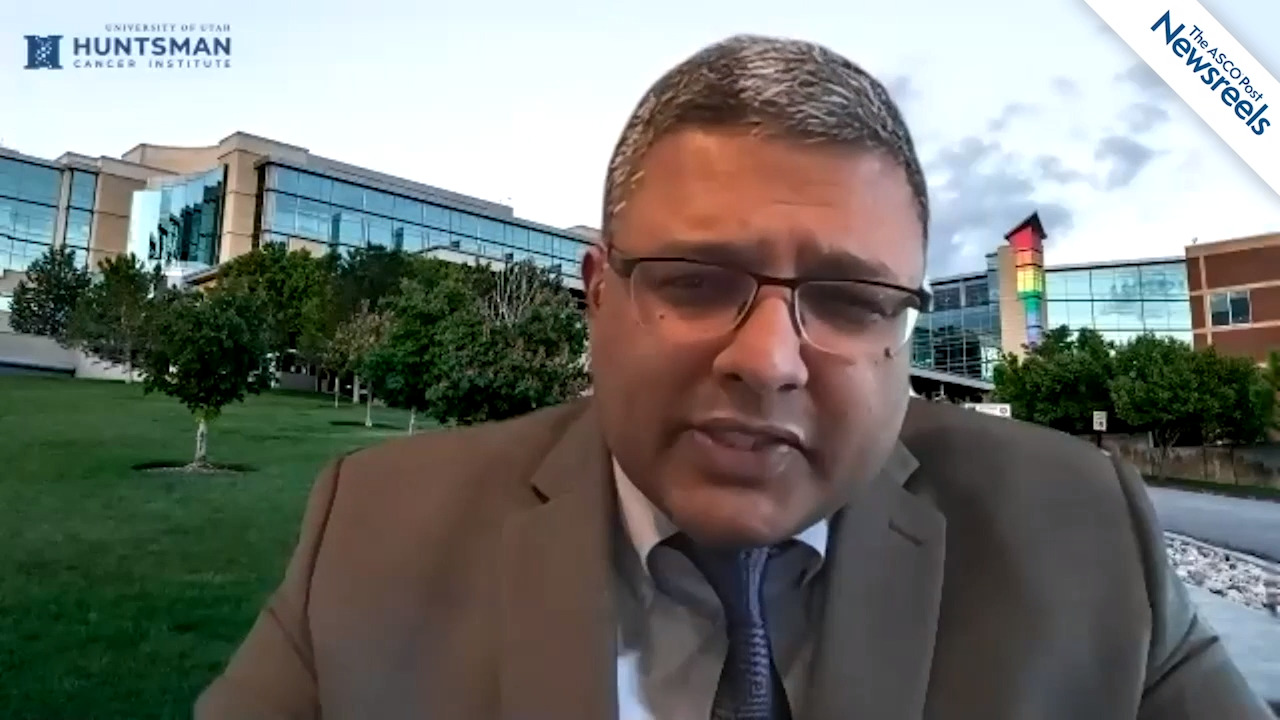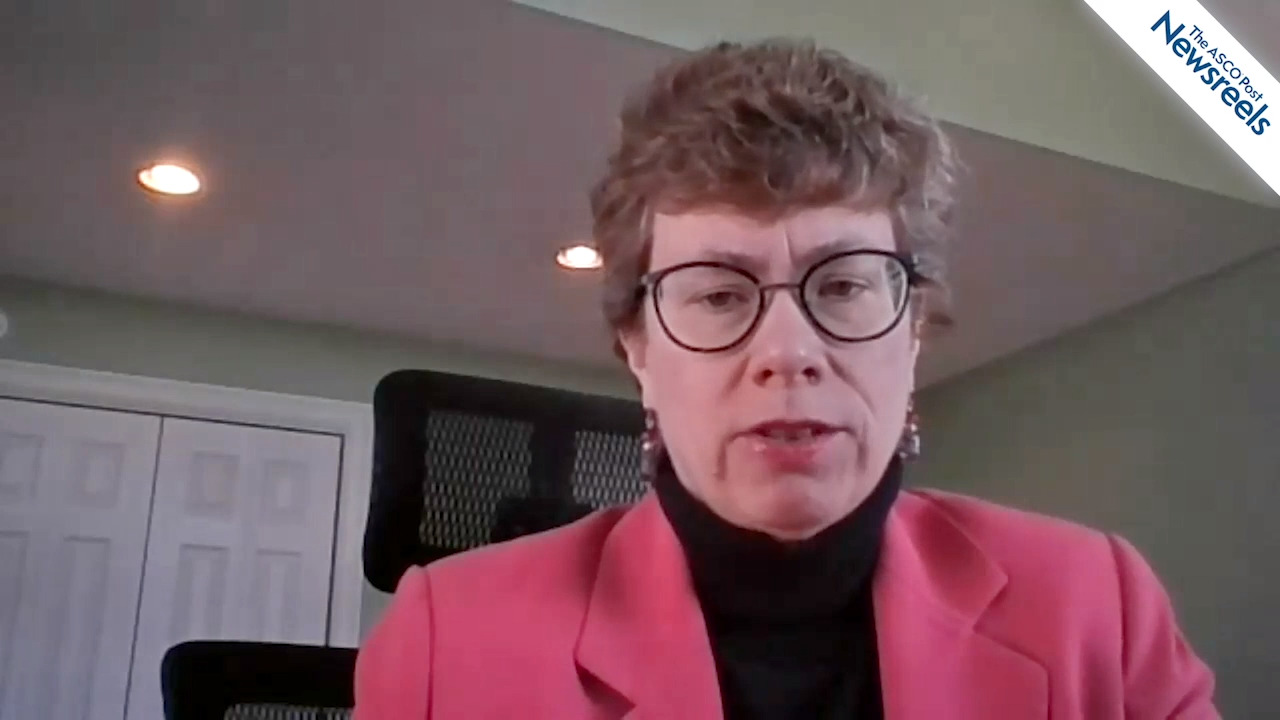Arlene O. Siefker-Radtke, MD, on Urothelial Bladder Cancer: New Settings for Immune Checkpoint Inhibitors
NCCN 2021 Virtual Annual Conference
Arlene O. Siefker-Radtke, MD, of The University of Texas MD Anderson Cancer Center, discusses the changing therapeutic landscape in which atezolizumab, avelumab, and pembrolizumab have either been approved or are under review for treating urothelial bladder cancer in the metastatic, superficial, and adjuvant settings.
The ASCO Post Staff
Crystal S. Denlinger, MD, of Fox Chase Cancer Center, and Mary F. Mulcahy, MD, of the Robert H. Lurie Comprehensive Cancer Center of Northwestern University, discuss biomarkers for determining treatment; immune checkpoint inhibitors; when to employ such treatments as platinum/fluoropyrimidine and fam-trastuzumab deruxtecan-nxki; and other second- or later-line therapies such as paclitaxel, ramucirumab, irinotecan-based regimens, and trifluridine/tipiracil.
The ASCO Post Staff
Melinda L. Telli, MD, of Stanford Cancer Institute, discusses highlights of the new NCCN Clinical Practice Guidelines in Oncology®, including nonanthracycline, taxane-based regimens as preferred treatments for patients with HER2-positive breast cancer; newly approved combination therapies such as tucatinib plus capecitabine plus trastuzumab, margetuximab plus chemotherapy, and neratinib plus capecitabine; and recommendations for third line and beyond.
The ASCO Post Staff
Thomas K. Varghese, Jr, MD, of Huntsman Cancer Institute at the University of Utah, summarizes a panel discussion on how the COVID-19 pandemic has interrupted cancer screenings, when telemedicine works and when it doesn’t, opening alternative care sites in the community, and the emotional and mental toll the coronavirus has taken on health-care providers.
The ASCO Post Staff
Shaji K. Kumar, MD, of the Mayo Clinic Cancer Center, discusses the latest data on treating patients with multiple myeloma, including standard-of-care induction before stem cell transplant; the role of quadruplet induction; long-term results with the combination of daratumumab, lenalidomide, and dexamethasone in those who are ineligible for stem cell transplant; CAR T-cell engagers; and the need for more research on how immunotherapy fits in the sequence of treatments.
The ASCO Post Staff
Jennifer R. Brown, MD, PhD, of Dana-Farber Cancer Institute, discusses treatment choices for patients with relapsed or refractory CLL/SLL, when to stop therapy due to adverse events, BTK inhibitors and their second-generation counterparts, the need for ways to manage disease progression on novel drugs, and minimal residual disease as a predictor of response.





